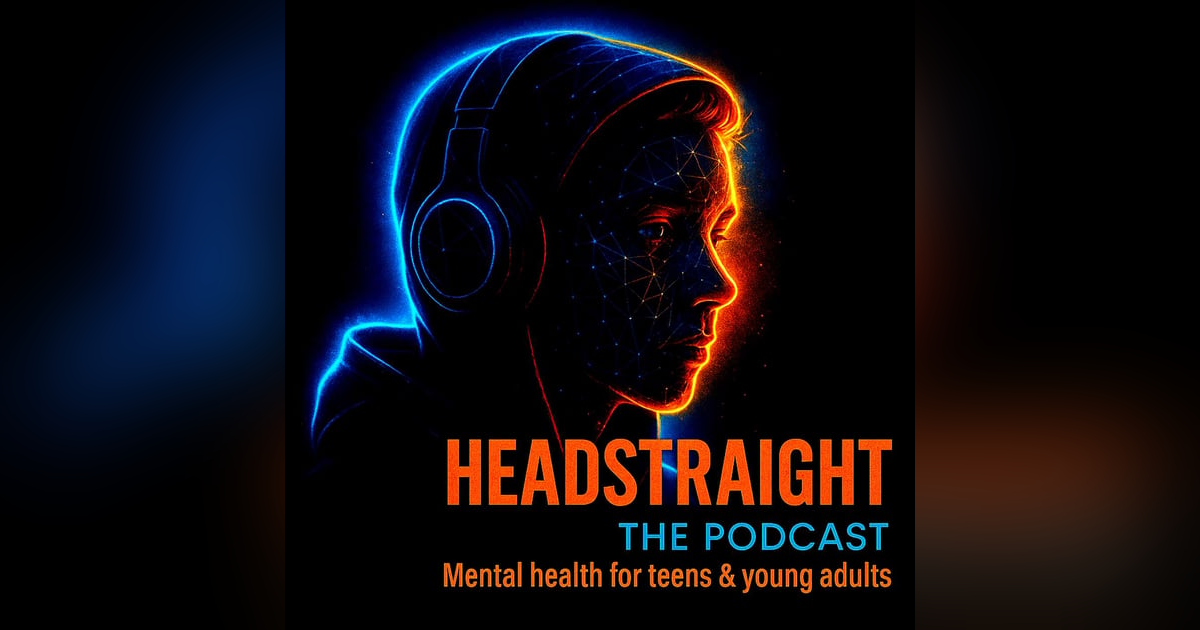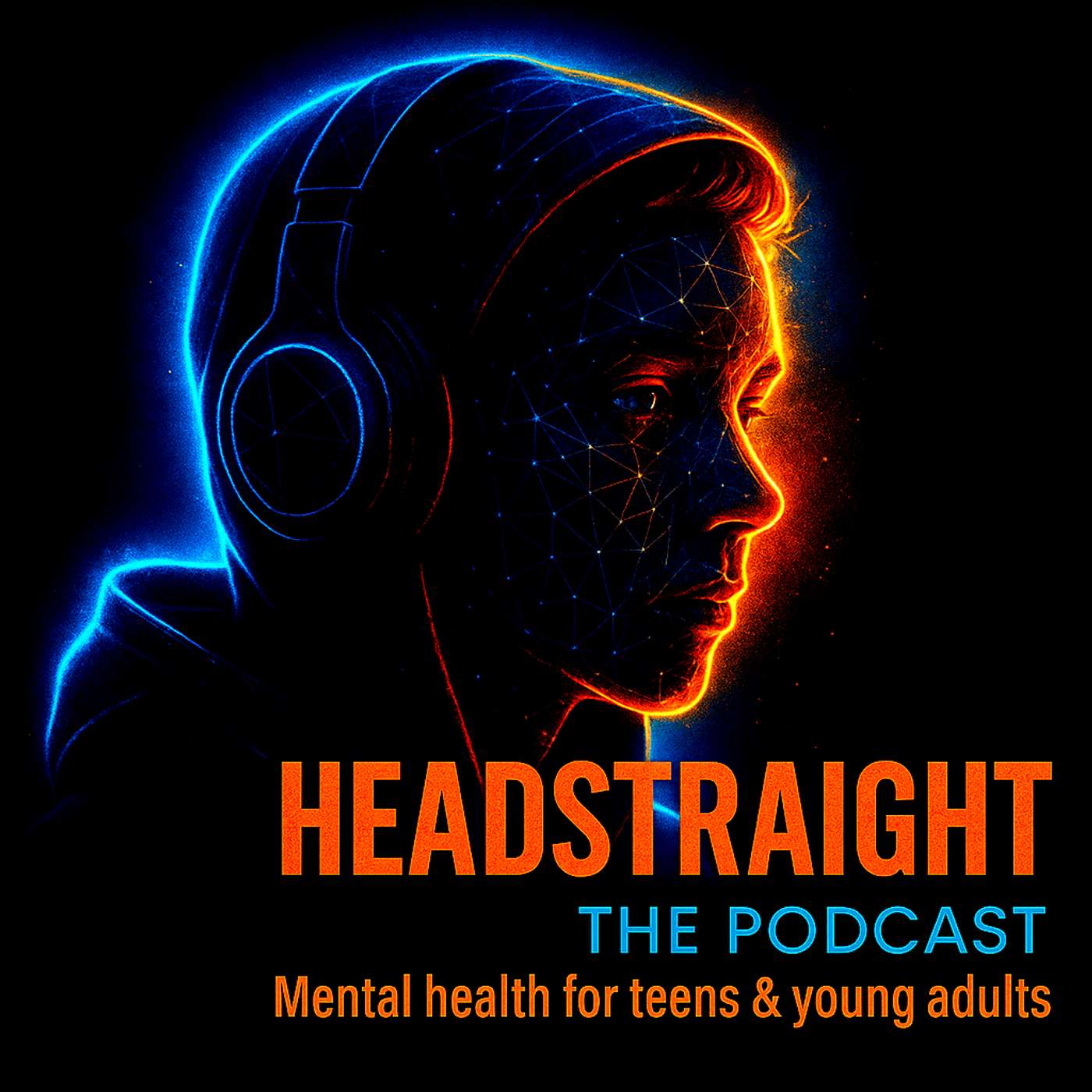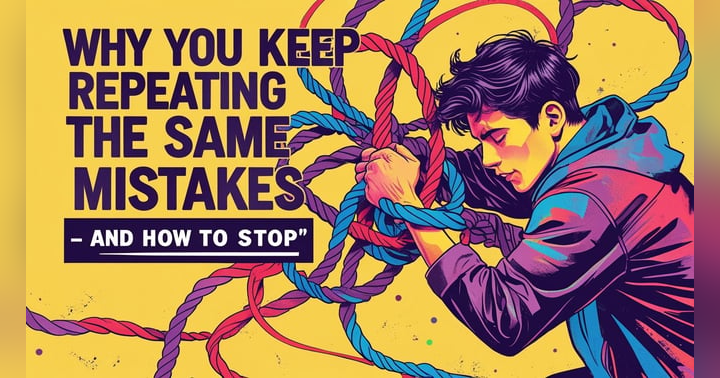How to Stop Falling into the Same Toxic Loops


Ever feel like you’re stuck in the same toxic patterns affecting your teen mental health—repeating arguments, habits, and regrets? In this episode of Headstraight, real talk mental health host Mark Taylor helps teens and young adults identify and overcome fear, self doubt, and self-sabotage. We discuss how these behaviors often stem from outdated survival strategies like people pleasing or avoiding conflict, which now hinder emotional wellbeing.
Learn practical ways to spot and interrupt these harmful cycles in real time and how making better choices—not striving for perfection—can free you from guilt and shame. This episode is a must-listen for anyone seeking teen mental health support and tools to take control of their personal growth. It’s messy and uncomfortable, but that’s exactly where healing and change begin.
If you’re ready to stop letting fear run your life and start prioritizing your emotional wellbeing, come listen and start rewriting your story today.
Want the Cheet Sheet? Click the Link or copy and paste the following into your browser:
https://docs.google.com/document/d/1e-dIdyRNug9pVSgDuuiz9ExsMWtpRRNQ/edit?usp=sharing
Got something to say? - come send me a message at www.headstraight.co.uk/contact/
or send me a voice note at www.headstraight.co.uk/voicemail/
Click here if you want more info about the host
If you need more information about helplines, services or what do to if you're in a crisis, take a look at our resource page: https://www.headstraight.co.uk/resources
Mark:
My name's Mark, and you're listening to Head Straight. Hello, you lot, and welcome back. Right. Let's be honest. Have you ever caught yourself mid argument, mid apology, mid spiral thinking, I've literally been here before?
Mark:
New day, different people, but somehow same outcome. You play it back later and go, I knew I didn't wanna act like that again. But in the moment, it's like you're on autopilot. So maybe you were saying sorry when it wasn't even your fault. Bottling up how you feel, smiling your way through it and pretending everything's fine, pushing away good people because being seen just feels too vulnerable, or swearing that you're gonna do it better next time, but next time looks eerily familiar.
Mark:
But here's the kicker, you know it's a pattern. You're not oblivious, you see it. But stopping it? That's where most of us get stuck. This episode is about that stuckness.
Mark:
The emotional loop that you keep finding yourself in. We're diving into what toxic patterns really are, where they come from, how to spot them when they're happening and most importantly, how to shift out of them for real this time. No therapy jargon, no shame spirals, just real talk and tools that you can actually use. But before we go anywhere, we need to understand what even is a toxic pattern. So let's strip it right down.
Mark:
A toxic pattern is a behavior that you repeat even though it hurts. Not in a dramatic way, but in that quiet, exhausting way that chips at your self worth. Now it might look like always trying to fix other people's moods even when they've done nothing to deserve it. Saying yes to things that drain you just to avoid conflict or playing small so others don't feel threatened or talking yourself out of speaking up only to really wind yourself up about it later. Now you leave these situations feeling depleted, invisible, or resentful, and yet you do it again and again.
Mark:
But why? Let me tell you. Because your brain's wired for what's familiar, not what's healthy. And the more you do it, the more automatic it becomes. So eventually, you stop even noticing it, and it becomes that's just how I am.
Mark:
But here's the truth. That's not who you are. That's who you've learnt to be. Now I want you to think. Think about your last tough conversation, argument, or awkward moment.
Mark:
What's your normal go to in those situations? And is it helping or is it harming? Now let's take a look where these patterns come from. Let's dig into it a little bit deeper. Not to dredge up drama, but to get some clarity.
Mark:
These behaviors didn't appear out of nowhere. You learnt them. Usually earlier on when you were trying to feel safe, accepted, or loved. For instance, if your home was tense or explosive, you might have learnt to tiptoe around everyone else's emotions. If love was conditional, you probably tried to earn it by being impressive, helpful, or agreeable.
Mark:
If your feelings were dismissed, you might have learned to dismiss them too before somebody else could. Now these are scripts, and your brain runs them like old software. At the time, they worked. They protected you. But now they're just sabotaging stuff that you wanna do.
Mark:
So let's break it down. People pleasing once kept you connected, but now all it does is keep you anxious. Avoiding hard conversations once kept you safe, but now all it does is keep you isolated. Overthinking everything once helped you to feel in control, but now it just paralyzes you. But I want you to know, you're not broken.
Mark:
You're just using old tools in the wrong context. And this is the key. Changing doesn't start with blaming yourself. It starts with understanding. You're not the villain in your own story, but you do get to rewrite the script.
Mark:
So let's have a think about how to catch the patterns in real time. Okay, so you've spotted the pattern, you've got a hunch about where it came from, so let's talk about what it looks like in the moment. Because here's the thing, the patterns don't show up and say, hey, I'm about to mess things up again. They arrive quietly as a twist in your stomach when someone asks you for something and you really want to say no. As a voice in your head that says, don't bring it up, you'll just make it worse.
Mark:
As an urge to ghost or retreat, shut down, even though parts of you wants to stay. So what you need to do is start paying attention to your tells. Now these can either be physical, emotional, or thoughts, and it might look like tension in your body or tight chest or guilt or fear, resentment, or that self doubt that creeps in or that inner critical chatter that happens. And here's your job, not to stop it immediately, but just notice it. So maybe say to yourself, this is the part where I overexplain because I'm scared of being misunderstood.
Mark:
Or, yeah, this is the urge to back out because I feel exposed right now. Or, right, this is where I start minimising my own needs. Naming it breaks the spell. It puts you back in charge, even if you don't act on it yet. So now let's look at the shift, how to actually break the loop.
Mark:
Now, this is where we get into the real work. Now you won't flip your personality overnight, but you can change your direction. So let's go step by step. And the first step in doing this is name the pattern. And I want you to say it out loud.
Mark:
This is me playing small so no one gets uncomfortable. This is me trying to earn approval again. This is the pattern that makes me disappear when things feel really hard. Now the reason why this works is naming it gives you distance. Distance gives you choice, and choice is where the change begins.
Mark:
Now the next thing we're gonna do is interrupt the pattern, not with a grand life overhaul, with just one small act. If you usually apologize for having a need, try not apologizing. If you always soften your words to make others feel better, say it straight, kindly, but clearly. If you'd normally go silent, try, do you know what? I'm feeling a bit off.
Mark:
Can we talk? Now expect it to feel wrong or awkward or even guilty. That's not a sign to stop, but that's a sign that you're doing something new. The next thing to do is to reconnect with your why. Write it down, keep it somewhere visible.
Mark:
I'm breaking this pattern because I want healthier relationships. I'm learning to speak up because I'm done feeling invisible. I want to show up for me, not just to keep others happy. Your why keeps you grounded when the discomfort comes in. So I just want you to ask yourself a quick question.
Mark:
Who are you now becoming by choosing differently, even when it feels uncomfortable? Now the next part is about expecting discomfort, but not failure. Now nobody tells you this. Growth feels uncomfortable because it's unfamiliar, not because you're doing something wrong. Choosing calm when you're used to chaos feels boring.
Mark:
Being seen when you're always hidden feels terrifying. Setting a boundary might feel selfish because you were taught to prioritize others. But those feelings, they're just the stretch marks of change. You don't have to wait until it feels good. You just have to not run when it feels hard because discomfort doesn't mean it's the wrong choice.
Mark:
It often means that it's the right choice. So let me set you this week's challenge, and this is what I want you to try. Firstly, I want you to start spotting the patterns. What behaviors do you keep repeating even when it leaves you drained? I want you to name it.
Mark:
Say it out loud. Write it down and get honest about what's really going on. And then interrupt it once. Do something different, no matter how small. Change the script.
Mark:
And then I want you to reflect. How did it feel? Uncomfortable? Liberating? Both?
Mark:
Was there anything that particularly came up? And that's it. One loop, one change. So if you need a reminder about the stuff that we just talked about, the cheat sheet link is in the episode description. So maybe take a screenshot of it and stick it on your phone, stick it in your diary, stick it on your fridge.
Mark:
I don't care. Just make it visible because it's yours to do that. Now here's a request from me. If you know someone who'd benefit from listening to this podcast, I want you to send it their way because that small share could land exactly when that person needs it. And do you know what?
Mark:
I'd really appreciate it too. So let's take a look at the next episode. The next episode is all about why do I put myself last? We're digging into the guilt, the worth, the boundaries, and how you can stop shrinking yourself to keep others comfortable because you matter, full stop. So let's talk about what it takes to finally believe in that.
Mark:
And if that's something you wanna listen to, I'll see you in the next episode.













